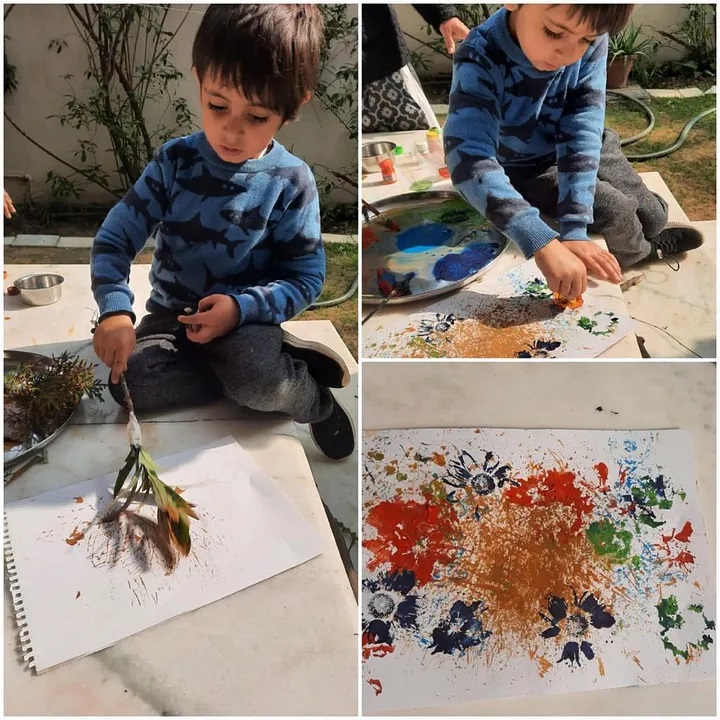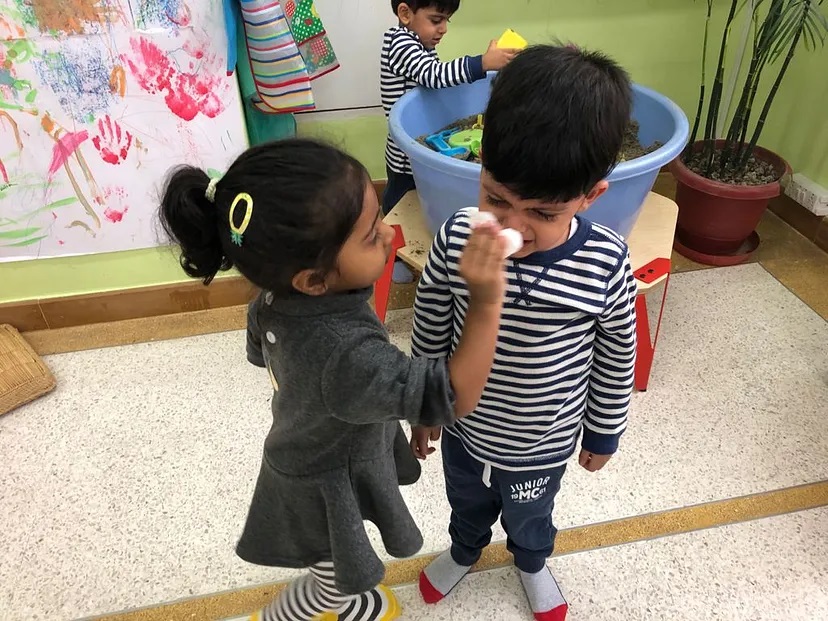Blog / 7 Ways to Support Your Child’s Emotional Health- Learning Matters
7 Ways to Support Your Child’s Emotional Health- Learning Matters
Published December 3, 2025 |
Parents today are increasingly cognizant of their children’s physical health and ensure regular immunizations, periodical doctor visits, healthy lifestyle habits etc.
Yet, as we all begin to deal with the effects of the pandemic, it has become extremely crucial that we also pay attention to our children’s emotional health to ensure holistic and healthy growth.
Emotional health is determined by how a child intercepts their positive and negative emotions and copes with them.
Young children are emotionally expressive. As adults, we need to acknowledge their emotions and perceive them as normal. As Janet Lansbury, a well-regarded educator says:
“We need to regard young children’s emotions as normal
daily happenings allowing them to pass by as billboards on the highway. We’re not going to pull over and stop and address and go over each sign on the highway. We’re going to let them pass by. We’re going to take note of them because some might be important, but we’re not going to hit the brakes, and make a big event out of any of them. Because it’s that normalizing of emotions that will allow for this flow in our children’s lives to feel more acceptable”
Here are some steps for parents and caregivers to support the emotional health of children of all ages.
1. Be connected with your child:
For a child to be honest with you about their feelings, it’s very important for them to feel a positive connection and a sense of trust with their environment, and most importantly, with you.
Take out the time to be connected with your child and their emotions. Make mental notes of your child’s body language as non-verbal cues into their emotional health.
While it’s essential for you to connect with the child, it’s equally important that the child feels a sense of belonging with you to share their honest emotions.
If they are feeling uncomfortable connecting, give them adequate space and time to do so.You can also support them using sentences that signify emotion by sharing your challenging feelings about the day with them such as:
“When I lost my wallet today, I was very upset but, when I found it in my car, I felt relieved and happy.”
2. Be a non-judgemental listener:

As adults, we tend to fix things for our children by either admonishing them or advising them on their challenges but, at times, they seek comfort and not advice from their caregiver or parent.
Lael Stone, a TEDx Speaker and co-creator of Woodline Primary says,
“Instead of trying to fix my kids’ problems, instead of trying to make them happy all the time, I just got down low and I said tell me all about it and I just listened. Sometimes it was tears, sometimes it was rage, there’s a lot or complaining that happened but every time my only job was to sit there and just hold, for them, and what I began to see was this incredible emotional intelligence developing in my children.”
For a child to be emotionally intelligent, as parents/caregivers, we need to show empathy and active listening skills just as we would do with any adult.
Create a safe space for them where they can express their emotions without the fear of being judged or being told what they need to do.
You can start with acknowledging their emotion by asking reflective questions like, “When your friend called you this name, how did you feel?”, and let them experience the emotion.This helps your child develop effective communication skills while learning how to place trust in others and verbalize their feelings, helping them become more self-aware and develop healthy coping habits.
3. Give access to a confidant:
As a parent/caregiver, we tend to take on the entire responsibility of our child’s well-being but at times, the child could need another confidant especially when you’re not available. This also helps the child develop social and emotional skills.
So while trying to make every effort to ensure that you know what is going on in your child’s life, also invite your child to have that one person (who isn’t a parent) with whom they feel safe to interact, be it a friend, a school teacher, or a grandparent.
4. Encourage spending time in nature

Just like adults, it is equally or rather more important for children to spend time outdoors in nature.Not only does this have physical benefits like improved motor skills but also aids social and emotional development. Sunlight exposure is known to improve mood and strengthen the immune system.
Further, time spent outdoors with peers can help with social interaction, enhancing imagination and building teamwork. All these factors can play a vital role in developing emotional health.
5. Help cultivate an interest/passion:

According to AltaMed’s Director of Behavioral Health, Sandra Pisano, PsyD,
“Creativity and play stimulate the “pleasure” and “calming” parts of the brain, which in turn prevents or reduces sad and fearful reactions.”
Developing a creative interest like painting, gardening or anything that your child takes to can help your child channelise their emotions into something productive thus, showing resilience and self-dependence for managing their emotions.
If your child is struggling with verbal communication, encouraging them to draw a picture of their feelings or writing a story about it would help them identify a channel for expressing themselves more openly to others.
Ensure that your child is taking enough screen breaks in the day and using those breaks to cultivate this passion or hobby.
6. Practice mindfulness and gratitude with them:

While encouraging the child to express their emotions, whether positive or negative, is healthy, it can be equally beneficial to guide your child to see the glass as half full and develop a gratitude attitude.
A healthy activity could be introducing them to simple mindfulness practices that help your child deal with negative emotions. This could be journaling daily or practising deep breathing or writing down things that they are grateful for before going to bed.
You can also encourage the child to practice “STOP” when they are in stressful situations.
Stop
Take a break from the activity that is agitating you.
Take
Take a Breath. Practice deep breaths to let out other feelings slowly as you feel the air pulling in.
Observe
Observe how you’re feeling and how the others might be feeling at this point in time.
Proceed
Think about how your next steps are, how these steps will affect you and the other person, and what alternative do you see for it.
7. Find a way to slow down and unwind:
In today’s time, when parents want their child to move fast and excel multilaterally, it’s very important to ensure that your child is taking enough rest in the journey.
An overload of content can emotionally overwhelm a child, preventing them from learning and experimenting.
Spending a togetherness hour every day with your child can help the child bond with you. This space can be utilized to watch a movie together or read a book, dance to some light music or take up any fun activity that you can enjoy with each other.
Further, maintain a schedule when it comes to your child’s sleeping patterns.
Inadequate sleep can disrupt their well-being as well, so it’s important that the child is sleeping for at least 8–9 hours a day and following a healthy sleeping cycle.
Conclusion:

With easy access to content today, parents, teachers and caregivers are recognising the emotional needs of children. If done well, this can ensure that we raise emotionally intelligent and healthy individuals who have found constructive ways to express and channelise their feelings.
Hence, as parents and caregivers, we should start early, be cognizant of the child’s body language, be receptive to their needs, be open to acknowledging their emotions and provide the best support we can.
For more info on our programs around joyous and early childhood learning, you may visit here.






